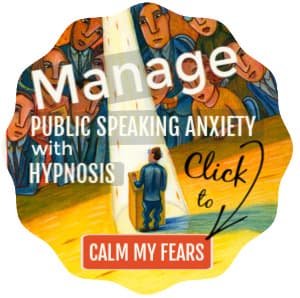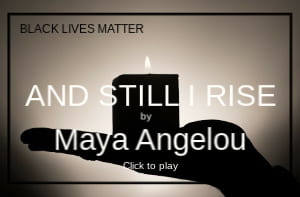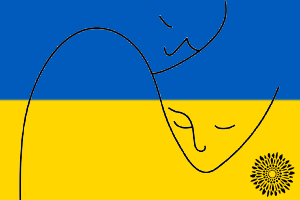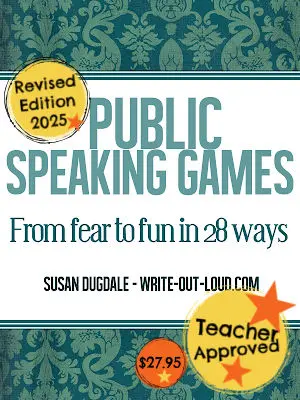- HOME ›
- Poems to read aloud ›
- How to write a poem in free verse
How to write a poem in free verse
- step by step instructions, with examples
By: Susan Dugdale
Learn how to write a poem to include as part of a special occasion speech: a wedding, engagement, birthday, retirement or funeral.
Your original poem, the gift you've personally spent time hunting down words for, and sweated over them, will make the most vivid and cherished of memories.
Yes, you can do it!
What do you need to begin?
Very little. Just some paper, a pen, time, and willingness to explore possibilities.
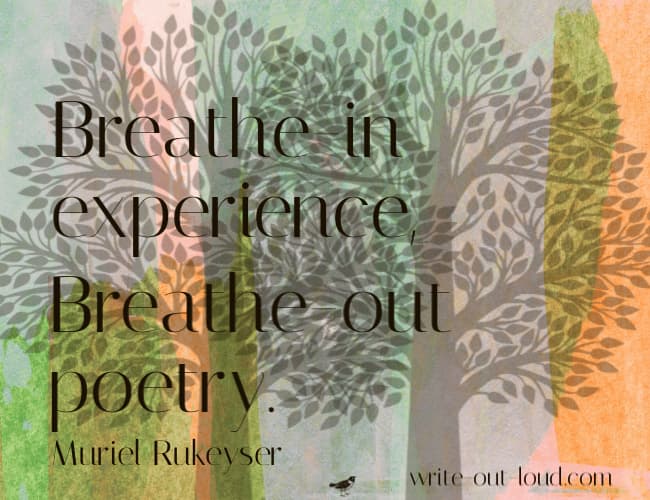
Goodbye inner critic, take a walk
You also need to put aside the inner critic - the voice prattling on in the background of your mind, commenting, unhelpfully, on what you can, and can not do.
It's easily recognizable because it will be muttering mean little gems like this:
- "You never were much good with words."
- "Poems have to rhyme to be real."
- "That bit is complete rubbish."
- "My goodness! Look at the time! You've got to clean the car, pick up the children, and cook dinner. You can do this later, if you must."
Thank that mean critic for their concern. Let him/her/they/it know you're up to handling the task, send him/her/they/it into time-out and firmly close the door. Goodbye.
Crafting a poem is an ancient and honorable activity - worthy of your time and effort.
And yes, you are going do it.
Did you know poetry pre-dates writing?
Before there were written languages people all over the world remembered and passed on their important stories through oral poetry.
Their poems used predictable rhymes and rhythms based on the natural flow of breath and beat of the heart because it made them easier to recall.
These ancient poem or story tellers were revered as they were the memory keepers of cultural and community history. Without them there was no continuity.
For more read an overview of the history of poetry.
Writing free verse
We're going to focus on how to write a poem in free verse, that is verse, or poetry, without strict rhyme schemes or meter. You will still use elements of poetic or figurative language for that is what makes your poem, a poem.
If you don't understand, don't worry. You'll find out a little more about poetic or figurative language later, further down the page.
About free verse
My understanding is that free verse uses most of the attributes of structured poetry but in a non-structured way.
For example, you will not find a regular beat or meter running through its lines. There will be no recurring rhyme scheme.
What will be present is the language we recognize as poetic. It will be precise, concise and condensed. The pictures it conveys will be concentrated.
As we read and experience the poem it will resonate on several levels, each new finding arising from yet another discovery of another layer of meaning.
At our first reading the poem seems to be about "X". On our second and subsequent readings we find that the poem is about "X", as well as "Y", and "Z".
The story of the poem or its central idea has been compressed. It's only when we pause to unpack it that we find the rest.
Here's an image I like to use to help describe the process of discovery.
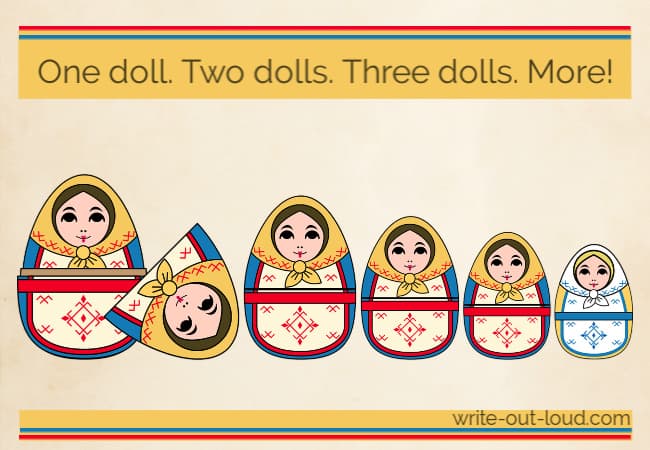
At first a Russian babushka (grandmother) nesting doll appears as a single entity. It seems to be just what we see. Nothing more. Nothing less.
And then the unpacking begins. We see more and more dolls arising out of the first. This, to me, is the poetic experience, multi-layered and springing from one source.
Let's begin your voyage of discovery, the journey toward your own free verse poem.
The writing process
The starting point is finding what or who you want to write about.
Brainstorm to generate ideas
On a fresh sheet of paper begin a brainstorm. Put the trigger or seed for the poem in the middle. This is the name of the person, thing, or event you want to write about.
Now without editing yourself, quickly jot down as much as you can about your subject. You do not have to write full sentences. You do not have to spell correctly. Your job at this stage is simply to note down everything that springs to mind.
It might be a color. It could be a sound, a piece of music, a way of smiling, a habitual phrase a person used to say, a piece of clothing, the way a person walked or talked... It is whatever comes to you.
Think of your senses: sight, sound, smell, feeling and taste. What you want are vivid representations for each of them. The more direct and specific, the more evocative they will be.
Give every new, or fresh idea, its own space on the paper. You'll end up with a sun-burst pattern, your trigger (subject) in the center surrounded by raying clusters of words.
Here's an example using the phrase "My Father" as the trigger.
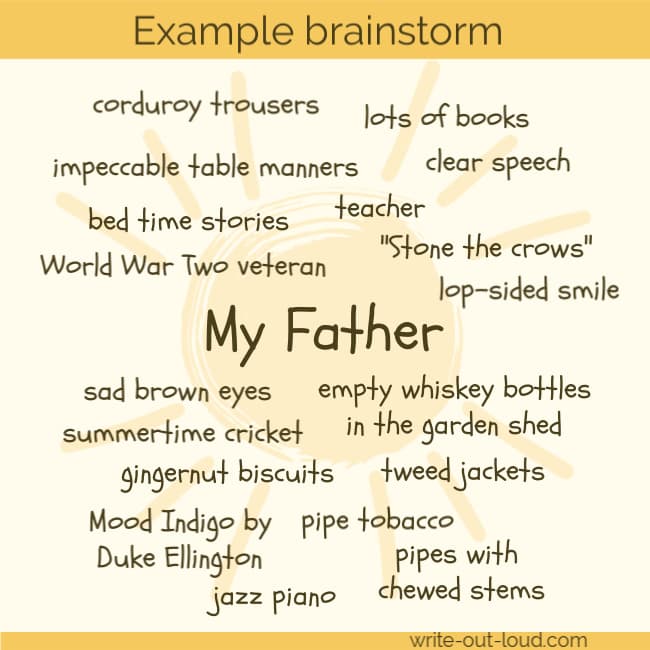
Review your material
Once you've done as much as you can, stop and review what you've got.
- What stands out demanding more attention?
- Is there a theme or a core idea?
Whatever leaps out at you is asking to be explored some more.
Allow yourself to free wheel through your notes, adding whatever comes to mind.
Again, DO NOT EDIT! You can do that later. For now you are playing, giving permission to your imagination to rumble through the treasure trove of your memory and bring back its findings.
Add to your notes
For instance I went back to my original brainstorm notes about my father:
- Alongside "tweed jackets" I added "rough, rasping, unshaven" for their texture against my face as a child
- I added "heavy spiced" for the way the smell of his pipe tobacco was woven into the fabric of his jackets and then noted the buttons were "hard bobbles" (like nuts) of brown leather
- his "jazz piano" evokes "minor keys, black and white, repeated phrases, bars, notes slurring"
- "Mood Indigo" is a famous Duke Ellington piece my father used to play - his moods becoming darker until indigo was black
- "returned soldier" - "tanks, Italy, desert Egypt, parades, medals, old black beret, grainy black and white photographs" (My father was a World War Two veteran who served in Egypt and Italy.)
You'll find that you ignore some of the threads you started with in favor of others. That's fine. That's part of the process. You do not have to use everything you thought of. Go with the idea that pulls up the strongest images and feelings.
Here's the result of my playing with the "jazz piano" thread from the brainstorm about my father above.
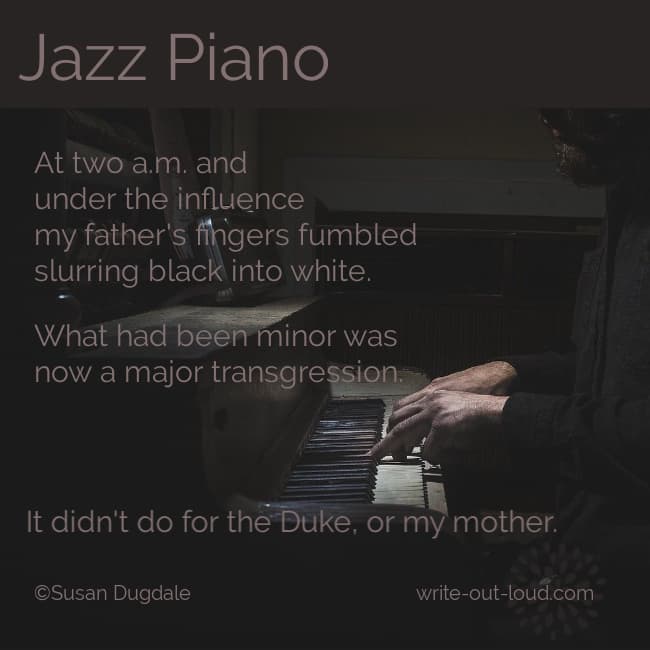
To hear me read Jazz Piano push play.
My poem writing process
What I did was take the phrases I'd generated and arrange them on the page. I kept chipping away, changing them, over and over again, until I was satisfied I had the most evocative and honest words possible.
For example, my first draft began:
"At two a.m.
under my father's fingers black slid into white"
On reading this aloud, and thinking about it, I realized I hadn't got the main reason for the notes sliding into each other. So I started again.
I wanted to get the whiskey in but I didn't want to say, "he was drunk". Instead I wanted my experience of listening to his piano playing when he'd been drinking to come through.
I went back to brainstorm again. This time I came up with "under the influence" and "slurred" in place of "slid".
The phrase "under the influence" is generally used to explain why a person is picked up and charged for a driving offense. They were "under the influence" of alcohol or drugs and driving erratically.
The phrase seemed apt to me because after a steady flow of whiskey he was definitely "under the influence" and becoming less capable of driving/playing his piano accurately. I thought the "driving" association was obvious and strong enough to use.
I substituted "slid" for "slurred" because "slurred" carried more detail. When a person is intoxicated it's not only their fingers that fumble. Their words do too and "slurred" was the richer word. It captured what happens to speech, thought, fingers and music.
"Under the influence" black slurs into white in many ways. Nothing is quite clear and boundaries are breached.
I liked the rewritten opening a lot better.
The next two lines tell what used to happen and contain several "plays" on words. "Minor" and "major" refer to the keys a piece of music is written in, as well as to the escalating annoyance my mother felt about my father's late night "under the influence" piano playing.
I included a reference to Duke Ellington in the last line because it was his music my father always tried to play. The line itself is a parody on a common English saying, "It wouldn't do for the Queen." It means not good enough, and is used to remark on anything slipshod: sloppy service or careless workmanship.
It works because of the royal connection to the name Duke. Duke is a royal title and Duke Ellington is royalty in his own way. Through linking my mother to him, I've also conferred royalty on her whilst putting her beyond my father - out of his reach, and above him. The line clearly shows her attitude. She was not amused.
And I've imagined it didn't do for the Duke either, because he wouldn't like to hear his music badly played.
Write for yourself
Does it work? Is it good poetry? Does it spring alive for you? Would I use it in a speech? Perhaps. It would depend on what the occasion was and who the audience were.
I hope you're ready to experiment for yourself. Get a blank sheet of paper and begin for that is really how to write a poem. Start. Put down a word. Write.
Common figurative or poetic language devices
Below are brief introductory explanations and examples of the more common figurative or poetic language devices. You'll find them in free verse as well as traditional poetry.
Some are "sound" devices that come alive once the poem is said aloud. Others are "imagery". You picture or see them in your imagination. Once you've got a poem underway see how many of them you've used without being consciously aware of doing so.
Sound devices
- Alliteration - repetition of the initial letter of a word. From my poem - "father's fingers fumbled", "didn't do for the Duke"
- Assonance - repetition of internal vowel sounds in words. For example - croon, moon, spoon.
- Onomatopoeia - words that sound like their meaning. From my poem, the word "slurring". Common ones are "crash", "bash", "bang", "thump", or "slam".
- Repetition - repeated words or phrases, (as well as rhythms or rhymes) to add emphasis or build mood.
For example the repeated phrase "I do not like them" from Dr Suess's wonderful classic children's book "Green Eggs and Ham":
“I do not like them in a box.
I do not like them with a fox.
I will not eat them in a house.
I do not like them with a mouse.
I do not like them here or there.
I do not like them ANYWHERE!”
Another well known example is the phrase "I have a dream" from Martin Luther King's famous speech of the same name. Although not poetry, he used poetic language to strengthen his speech. See the full text of his speech here: Martin Luther King: I have a dream.
Imagery
- Simile - comparing one thing to another. For example - "His face shone like the sun." or "Her words cut like a knife." The qualities of the knife and the sun are imaginatively linked to the subject.
- Metaphor - saying one thing IS another. For example - "He is the sun." or "Her words are knives." This is stronger than a simile. We are asking the reader or listener to believe a word is a knife and a man is the sun.
- Personification - giving person-like qualities to things. For example - "That car loathes me."
- Idiom - the use of common or colloquial sayings. From my poem -"under the influence"
- Hyperbole - an exaggerated statement or comparison. For example - "I've told you a thousand times." or "She was as big as a house." Neither are literally true.
- Word Play - There are many varieties of word play. From my poem - the intended double meanings of "minor" and "major", "black into white"
For a little more try this: 20 poetic devices you must know
And, lastly try playing with these prompts
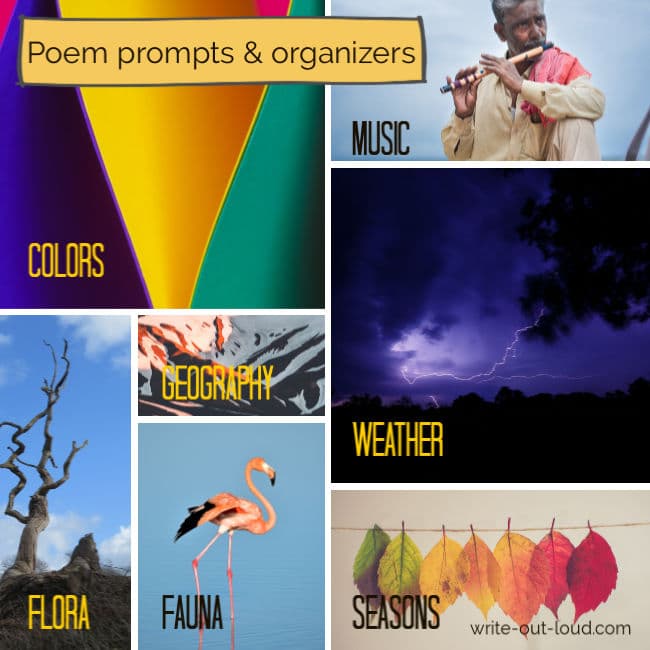
They're fun and can help with shaping a poem.
- color - a red, green, blue, black, pink, yellow ... poem.
Use the color to kick start your imagination around your chosen subject.
For example, yellow was the favorite color of a very good friend. So, what qualities of both can I link? "Yellow = sun, sun = friendship - she brought warmth into my life..."
Make a brainstorm around it remembering to keep it vivid by using all your senses. - the seasons - spring, summer, autumn and winter - apply their qualities to your subject
- day/night - allow your imagination to live into the qualities and stages of 24 hours - dawn, morning, noon, afternoon, sunset, night. How does this relate to your subject?
- days of the week- what characteristics do they have that your subject shares? Maybe it's always Sunday for them or Monday morning blues?
- geography- what's the country of your subject look/feel like? Are there mountains, rivers, lakes, springs, trees, forests, deserts...?
- music - use a specific genre or instrument and explore it relating it back to your subject.
- animals, birds or fish - take the qualities of one and apply to your subject. How are they similar?
- weather - try storms, wind, rain, snow, ice, sun, cloud...
- flowers or trees - if your subject was a plant what would they be and why?
There is no one right way to write a poem. There are many.
What I know is once you start allowing yourself to really play with words it becomes addictive.
Go well. Try it and see. Dare to write-out-loud!
More pages about poems
- how to read a poem aloud
- readings of well known funeral poems (podcasts)
- wedding poems and readings
- bereavement poems
- 6 fabulous poems for kids to play with

